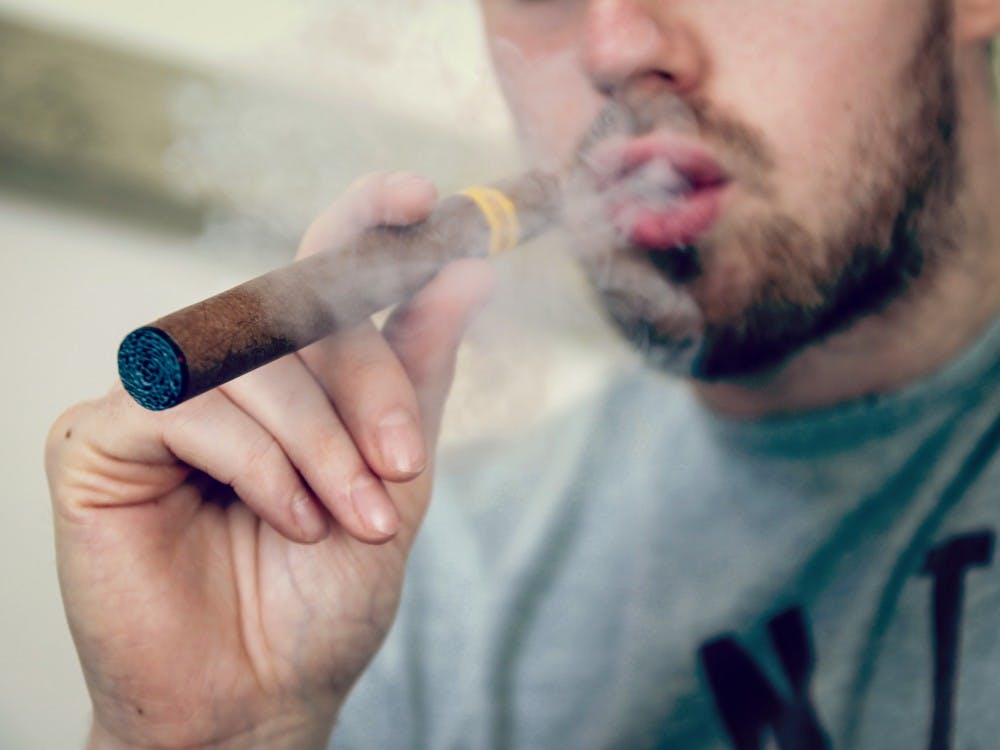In July 2020, Duke will become a smoke-free campus in efforts to improve the health of students and employees of the University.
The smoking ban applies to all students, staff, faculty, visitors, contractors and volunteers on any property or grounds owned or leased by Duke University, according to the Healthy Duke website. In order to help smokers quit, the Duke Smoking Cessation Program has partnered with Student Health and Employee Occupational Health & Wellness to provide treatment options ranging from medication to mindfulness training.
“Nicotine is highly addictive and many are unable to stop using tobacco without medical assistance,” wrote James Davis, assistant professor of medicine and the director of the program, in an email to The Chronicle. “Our goal is to create and foster a quit-friendly environment to support those who want to quit and need help doing so.”
Utilizing a multifaceted approach to evaluation, the center uses its analyses to generate a personalized treatment plan. This could involve medications and skills training and could be done on a group, individual or remote basis, with the last entailing “web-based programs, text-support or phone counseling,” Davis wrote.
People need individualized treatments because they face a variety of challenges during the process of quitting smoking, he added.
The program has also been careful to account for certain groups who are predisposed to smoking at high rates. Davis wrote that paying specific attention to people with “genetic predisposition to nicotine dependence, a history of tobacco use as part of religious or cultural norms, a psychiatric condition that creates a predisposition for nicotine use, or limited access to quality treatment services” is of the “highest importance.”
Outreach to these groups within the Duke community began in the initial stages of the center’s development, wrote Davis. This allowed for providers to gain insight to shape future policy and treatment.
Modeled after other smoking cessation programs across the country, the center follows a collaborative approach in which medical providers—including nurses, physician assistants and physicians—partner with behavioral providers such as clinical social workers to determine and deliver the best treatment method.
Some smokers can have free or inexpensive medication, thanks to the resources of the Duke center, including how discounts can be provided for treatment for Duke faculty and staff who are benefit-eligible or on a Duke health plan.
Duke’s program has achieved great effectiveness and promising results. Participating increases a person’s chances of quitting tenfold, according to Davis.
In addition, other forms of nicotine are allowed to help smokers quit or continue nicotine use. Announced by President Vincent Price in April 2018, the policy prohibits cigarettes and cigars, but the ban does not apply to e-cigarettes and other non-combustible forms of tobacco.
Sixty percent of smokers who try to quit will use e-cigarettes, Davis said in a video from the Healthy Duke website. He noted that e-cigarettes are also considerably safer than cigarettes, containing 5% of the toxin levels in cigarettes. However, smokers are still encouraged to use FDA-approved medication rather than e-cigarettes, which pose health risks.
Correction: An earlier version of this article incorrectly stated that the Duke Center for Smoking Cessation worked to provide assistance to those hoping to quit smoking. It has been updated to reflect that the Duke Smoking Cessation Program did that work. For clarity, it has also been updated to include Davis' role with the Smoking Cessation program rather than with the Center. The Chronicle regrets the error.
Get The Chronicle straight to your inbox
Signup for our weekly newsletter. Cancel at any time.

